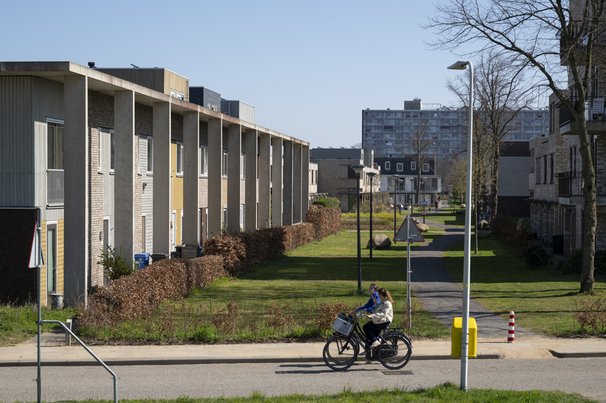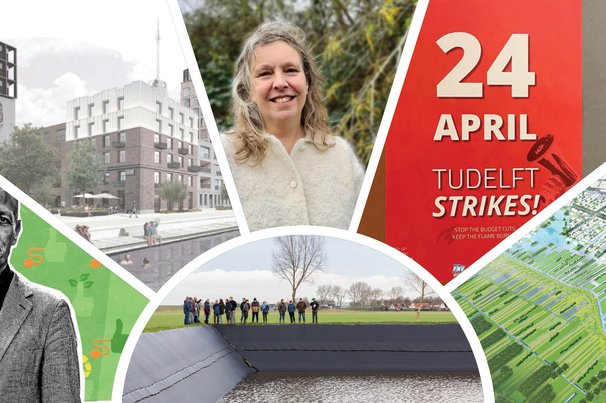Onderzoek Kunnen we het aan private partijen toevertrouwen om de openbare ruimte in te richten? Els Leclercq concludeert in haar proefschrift van wel, maar alleen met strenge overheidsregulering.
In the United States, it is commonplace for commercial parties to take over public space, but, in Europe, the idea is met with a feeling of distrust. Great Britain is somewhere in between. “Private parties help ensure that there are pleasant and clean areas where it's good for people to shop and live,” says Leclercq. “But they also want an environment that's completely free of risk. This is at odds with our conventional ideas about public life.”
In the 1970s and 1980s, many European cities faced the problem of dilapidated city centres and surrounding residential areas. In some places, the issues were tackled by means of neoliberal solutions. In her research, Leclercq explores the situation in Liverpool. As businesses moved out, unemployment increased and investment halted; the city in the north of England fell into serious decline. Thousands of houses were boarded up and the city centre was depopulated: only 3,000 people of the 30,000 inhabitants remained. Margaret Thatcher, Prime Minister at the time, adopted a largely hands-off approach to this working-class city. For her, market forces were the route towards urban renewal. In response, the local council, virtually bankrupt at the time, opted for a policy of urban renaissance. The aim was to redevelop inner cities in close collaboration with the private sector. One of Liverpool Council's solutions was to sell a third of the city centre to a project developer. ‘Productivity’, ‘efficiency’, and ‘effectiveness’ became the new drivers for policy development and implementation. In another area, a solution was found in collaboration with private parties in public-private partnerships. A third solution attempted urban renewal. The local council used this strategy in a deprived neighbourhood notorious for its race riots. In practice, urban renewal often amounted to large-scale demolition of former council houses and their replacement by more expensive new buildings. The physical space was given a make-over, but local social networks were devastated. One neighbourhood in this area refused to submit to demolition. Local residents joined forces to clean up the streets and paint the boarded-up houses. They established a community trust – a neighbourhood co-operation to renovate dilapidated homes.
Leclercq's comparative research partly focuses on the well-being of the users of these three areas. Were residents of the privately-run areas bothered by the fact that they were not allowed to distribute leaflets, demonstrate, take photographs or videos, and that children were not permitted to skateboard there? Not particularly, according to the residents' responses in interviews and via a self-developed app. Many were unaware that they were living in the middle of it. Because people are unable to take ownership of public space, the chance of graffiti, drug dealing, or public order offences are minimal. If anything happens, security guards step in. This is seen as positive. “But people did think it was strange that in an area covering 16 hectares, there were only two little walls underneath an escalator where people sometimes sat. Private public space is a monitored, controlled reality.”
In the public-private partnership area, maintenance quickly turned into a fiasco. In just a few years, the council was forced to take back responsibility for that part of the partnership. In the meantime, the community trust area continued in its work to improve the neighbourhood's image. The trust arranged for new tables and benches on the street and set up a market for local products. Partly as a result of this, the process of renovation had a chance of success. In Leclercq's research, there was a positive response to this. However, she points out that this in no way means that a public area managed by a residents' collective offers greater freedom than an area with commercial security staff. If a residents' group claims a plot of land for allotments, children will inevitably no longer be able to play football there.
Leclercq concludes that the privatisation of public space can work, but it also has its dangers. Dividing up public space into private 'islands' can threaten public life and citizens' rights. Leclercq: “The government needs to set boundaries in which private, public and community parties are permitted to operate and enforce any infringement of the rules. This is the only way of guaranteeing the rights of all citizens.”
Op 5 April verdedigt Els Leclercq haar proefschrift ‘Privatisation of the production of public space’.
De volledige thesis kunt u hier lezen.
Cover: "Old Town Mall" (Public Domain) by GuyDeckerStudio
Cover: ‘Baltimore Old Town Mall_ no attribution required’





